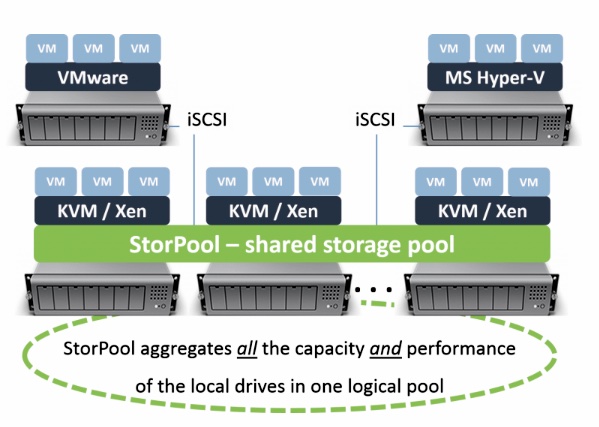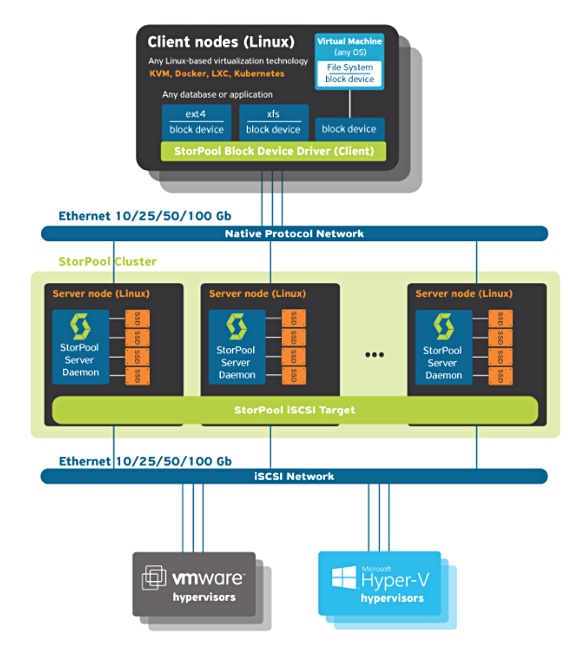StorPool, the Virtual SAN software vendor, has added IBM POWER and Arm64 server support in a software update.
New features in V18.02 include more integrations, extended hardware compatibility, hardware acceleration, and reduced resource usage. The upgrade adds Kubernetes integration to support the provision of storage volumes to containers, and support for hot-plug NVMe.
StorPool provides an X86 server-centric, scale-out virtual SAN, using Linux KVM servers as a base, and disk drives or SSDs or both as media. It also supports VMware and Hyper-V via iSCSI.


StorPool 18.02 uses kernel bypass technology for an ‘accelerated mode’ that delivers 30 per cent lower storage operations latency compared to the previous version. This works with Intel, Mellanox, and Broadcom NICs.
Boyan Krosnov, chief product officer of StorPool, said: “We can now complete storage operations in microseconds of latency, without sacrificing any of the … features of our solution … It is not about “hero IOPS numbers”. Consistent low storage latency makes applications run up to 8 times faster.”
The company says; “With accelerated mode, RDMA and NVME drives, a StorPool storage system, with triple redundancy across servers, end-to-end data integrity, and advanced data management features commits 4K write operations in approximately 50 microseconds (0.05 ms).”
No two ways about it – that’s fast.
IT costs an Arm (but not a leg)
StorPool thinks the economic case for Arm64 servers can be compelling, hence its decision to support the platform as a base server hardware component.
In a blog Krosnov writes: “In particular use-cases, they can help us achieve unprecedented power efficiency and storage density. Especially Arm server chips with many PCIe lanes, are very interesting for high-density NVMe storage nodes and for high-density HDD storage nodes.
“Arm compute servers, connecting to a separate StorPool storage system also make sense for some use-cases like web and mobile applications.
“And finally, Arm hyper-converged servers, where applications and storage system run on the same physical nodes, will also work great with StorPool, because of its extreme CPU efficiency. We push a lot of performance using a small number of CPU cores.”
StorPool notes that X86 Linux applications will need recompiling or rescripting to run on ARM servers.
But it makes this point: “The larger and more homogeneous environment you have, the more it makes sense to consider Arm servers. For example, assuming it is an application which would work well on Arm, if you have 1,000 servers doing the same thing, it is easy to justify. If you have 1,000 servers all doing different tasks in different ways, it probably doesn’t make sense to convert.”
In other words, it’s easier to justify converting a herd than one or two pets.
Krosnov is a vocal advocate for lock-in free storage hardware. Read more in my 2016 interview with the StorPool co-founder.








